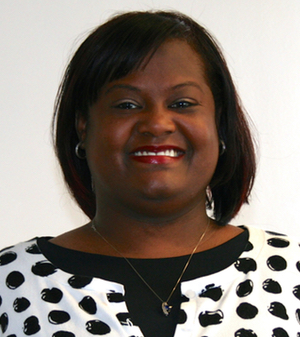Discriminate against a newborn? It’s legal in Michigan
At just six days old, baby Bay Windsor faced a humiliation that no Michigander should ever have to face. With not even a week in the world, she faced discrimination when Dr. Vesna Roi at Eastlake Pediatrics in Roseville denied her care because her parents, Krista and Jami Contreras, are lesbians. When this case made national news, thousands inside and outside our state were shocked.
Shocked that a pediatrician sworn to do no harm would violate an oath, and shocked that doing so is legal under Michigan law. Many assume lesbian, gay, bisexual, transgender, and queer (or LGBTQ) folks are already protected from discrimination under either state or federal law. They are often dismayed when they learn that to the contrary, LGBTQ people can be fired, denied housing or denied services because of who they are. As many are learning now, those services include medical care.
Luckily for Bay Windsor, she won’t remember these events. She lives in a large metro area and her parents were able to find another pediatrician. But what if she lived in a small town, with limited medical access? Or if as a teenager, she comes out as gay, and is subsequently denied care at a time of crisis? These scenarios are horrific, yet perfectly legal under current Michigan law.
The Elliott-Larsen Civil Rights Act, Michigan's non-discrimination law, was written and passed in 1976. It bans discrimination in employment, housing, and public accommodations based on religion, race, color, national origin, age, sex, height, weight and marital status. Attempts have been made over the years to amend the act, to include sexual orientation, gender identity and gender expression. So far, these efforts have failed.
The fact is, Michigan had an opportunity to protect children like Bay Windsor last year, when the legislature considered updating the Elliott-Larsen Civil Rights Act, to include protections based on sexual orientation, gender identity and expression. Instead the legislature wanted to couple Elliott-Larsen with a version of the Religious Freedom Restoration Act, which would exclude the transgender community from these most basic protection that could be afforded under Elliott-Larsen.
So Elliott-Larsen was not updated last year, and RFRA didn’t pass, either, but RFRA has been re-introduced. RFRA would allow this type of discrimination, no matter what happens with Elliott-Larsen, and it would allow individuals to determine which laws to follow, based on whichever religious tenets they subscribe to.
Right now, Michigan has human-rights ordinances in 36 municipalities to protect LGBTQ people against discrimination. But patchwork policies aren’t enough to protect everyone, and in this case they haven’t done anything to help children like Bay Windsor. In fact, they help point out the unsettling fact that someone who lives in Royal Oak, but has a doctor in Roseville, would have protections at home, but not at their doctor’s office. The scattered existence of these policies makes a great case for statewide protection.
In his State of the State address, Gov. Rick Snyder called on lawmakers to continue the debate on Elliott-Larsen. The story of Bay Windsor shows that we need to do more than debate. Not having a statewide, fully inclusive non-discrimination law is hurting real families and children.
It is time for lawmakers to update the Elliott-Larsen Civil Rights Act. Our LBGTQ neighbors, friends, co-workers, and family members deserve the same security as everyone else. They deserve the ability to seek medical care for themselves or their families, and be certain they will get the care they need. Seventy-four percent of Michiganders believe that LGBTQ folks deserve the same protections as everyone else.
Gov. Snyder’s Department of Civil Rights has said that amending the Elliott-Larsen Civil Rights Act is the right thing to do. The business community, including 89 percent of Fortune 500 companies, are already offering anti-discrimination protections. If we want to be competitive and keep the best and brightest talent in Michigan, we need to protect everyone, including and especially our youngest citizens. If we want families to put down roots in Michigan at minimum we must commit to first do no harm.
See what new members are saying about why they donated to Bridge Michigan:
- “In order for this information to be accurate and unbiased it must be underwritten by its readers, not by special interests.” - Larry S.
- “Not many other media sources report on the topics Bridge does.” - Susan B.
- “Your journalism is outstanding and rare these days.” - Mark S.
If you want to ensure the future of nonpartisan, nonprofit Michigan journalism, please become a member today. You, too, will be asked why you donated and maybe we'll feature your quote next time!


 Sommer Foster is director of political advocacy for Equality Michigan. (Courtesy photo)
Sommer Foster is director of political advocacy for Equality Michigan. (Courtesy photo)